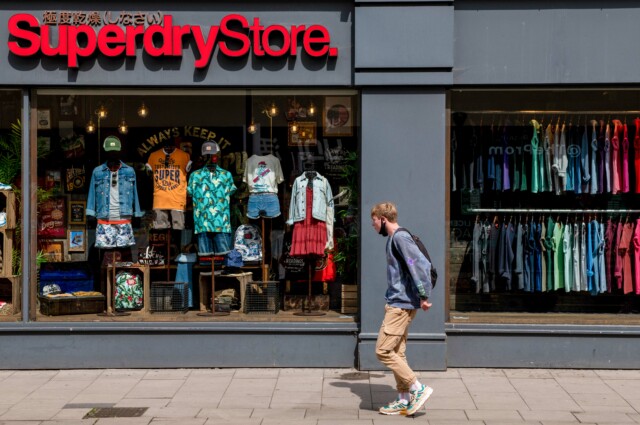
SUPERDRY investors were given a soaking yesterday after the brand revealed it does not expect to make a profit this year.
The British fashion chain said it may have to tap shareholders for cash as it struggled with dismal sales.
Superdry revealed it does not expect to make a profit this year
Superdry, which has 104 shops in the UK and 198 in the rest of the world, said it was looking at an “estate optimisation” and other options to cut costs by £35million.
To shore up the balance sheet it said it could also sell a 20 per cent stake in the business to raise funds.
Shares tanked by 18 per cent yesterday, valuing the business at £72million.
Julian Dunkerton, the Superdry founder who masterminded a boardroom coup to return as CEO, said: “We need to ensure our business is in the right shape to navigate these difficult times.”
Dr Martens joined the gloom by issuing its third profit warning in just five months on the back of huge warehouse costs.
However the boot brand insisted there was strong demand for its shoes, with recent UK sales up 10 per cent.
And AO World enjoyed a third profit upgrade yesterday after saying its cost cutting had paid off and a consumer slowdown had not happened “to the extent envisaged”.
Sterling rise
THE pound hit a 10-month high against the dollar yesterday, rising to $1.25 months after fears sterling could plunge to dollar parity.
After crashing to an all-time low of $1.03 last October following the the mess of the mini-budget, the pound has recovered as the UK has dodged a recession.
Deal revival
A £4.6billion takeover bid for vet business Dechra Pharmaceuticals yesterday set tails wagging that a dealmaking drought could end.
Shares in Dechra rocketed by 35 per cent after it confirmed that Sweden’s EQT and Abu Dhabi Investment Authority had offered to pay £40.70-a-share for the business.







